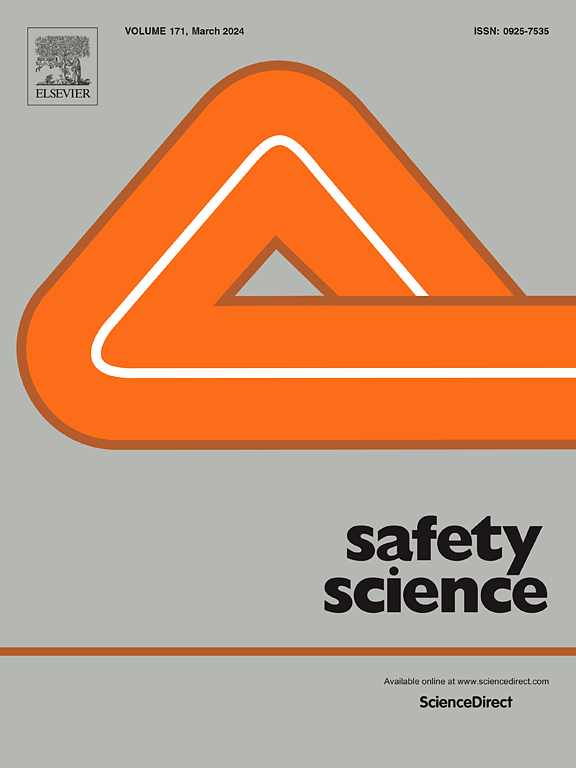Validating the polish version of the psychosocial safety climate PSC-12 scale (PSC-12-PL): a multisample and multilevel study
IF 5.4
1区 工程技术
Q1 ENGINEERING, INDUSTRIAL
引用次数: 0
Abstract
Purpose
This study validates the Polish version of the Psychosocial Safety Climate Scale (PSC-12-PL) by examining its reliability, factor structure, and associations with key workplace outcomes (organizational identification, task engagement, organizational citizenship behaviors, intention to quit), as well as communal (prioritizing cooperation and collective well-being) and agentic (focused on achievement and competition) workplace climates. Assessing PSC, the organizational climate for employee psychological health and psychosocial safety, is crucial as it directly impacts employee well-being and productivity.
Method
Data were collected from three samples of Polish employees (N = 664, N = 1163, and N = 211) covering both individual- and team-level perspectives. Methods included item analysis, confirmatory factor analysis (CFA), reliability assessment, measurement invariance testing, correlation analyses, and multilevel modeling. Variables assessed varied by sample.
Findings
CFA confirmed the PSC-12-PL’s four-factor structure with high internal consistency. The scale demonstrated measurement invariance across job positions, organization sizes, and time points (tested in Samples 1 and 2). It correlated strongly with communal workplace climate, marginally with agentic climate, and was linked to higher organizational identification, task engagement, and citizenship behaviors, and lower intention to quit. Multilevel analyses (Sample 3) revealed that both individual- and team-level PSC predicted greater task engagement and organizational citizenship.
Conclusion
The PSC-12-PL is a reliable and valid tool for assessing PSC in Polish workplaces. This multisample, multilevel validation supports its use in research and practice aimed at promoting employee well-being and positive organizational functioning.
波兰版心理社会安全气候PSC-12量表(PSC-12- pl)的验证:一项多样本、多水平研究
目的:本研究通过检验波兰版心理社会安全气候量表(PSC-12-PL)的可靠性、因素结构以及与关键工作场所结果(组织认同、任务参与、组织公民行为、辞职意向)、社区(优先考虑合作和集体福祉)和代理(关注成就和竞争)工作场所气候的关联,对其进行了验证。评估PSC,即员工心理健康和社会心理安全的组织氛围,是至关重要的,因为它直接影响员工的福祉和生产力。方法从三个波兰员工样本(N = 664, N = 1163和N = 211)中收集数据,包括个人和团队层面的数据。方法包括项目分析、验证性因子分析(CFA)、信度评估、测量不变性检验、相关分析和多水平建模。评估的变量因样本而异。发现scfa证实了PSC-12-PL的四因子结构具有较高的内部一致性。该量表显示了跨工作职位、组织规模和时间点的测量不变性(在样本1和2中进行了测试)。它与公共工作场所气氛密切相关,与代理气氛不太相关,并与较高的组织认同、任务参与、公民行为和较低的辞职意愿有关。多层次分析(样本3)显示,个人和团队层面的PSC都预测了更高的任务参与度和组织公民意识。结论PSC-12- pl是波兰工作场所PSC评估的可靠、有效的工具。这种多样本、多层次的验证支持其在旨在促进员工福祉和积极组织功能的研究和实践中的使用。
本文章由计算机程序翻译,如有差异,请以英文原文为准。
求助全文
约1分钟内获得全文
求助全文
来源期刊

Safety Science
管理科学-工程:工业
CiteScore
13.00
自引率
9.80%
发文量
335
审稿时长
53 days
期刊介绍:
Safety Science is multidisciplinary. Its contributors and its audience range from social scientists to engineers. The journal covers the physics and engineering of safety; its social, policy and organizational aspects; the assessment, management and communication of risks; the effectiveness of control and management techniques for safety; standardization, legislation, inspection, insurance, costing aspects, human behavior and safety and the like. Papers addressing the interfaces between technology, people and organizations are especially welcome.
 求助内容:
求助内容: 应助结果提醒方式:
应助结果提醒方式:


